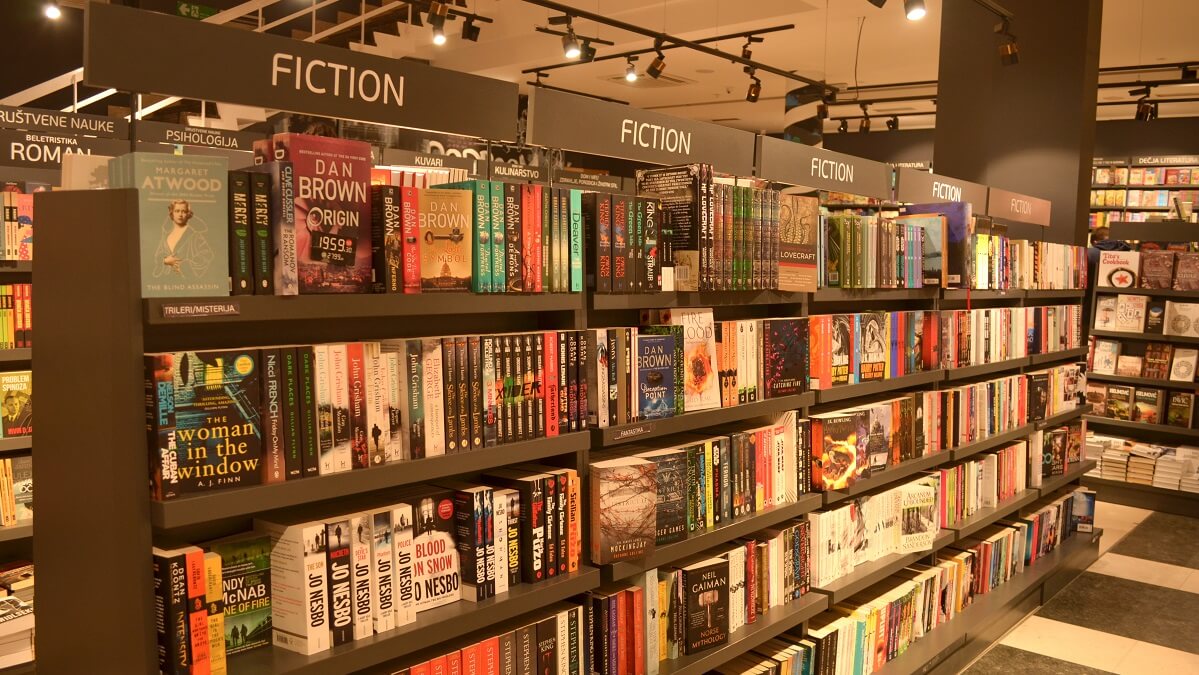It’s that time of year again … and we’ve invited 30 of our writers, from fields as disparate as wildlife ecology and mathematics to literature and politics, to share their best books of of 2024. Of course, best books lists are subjective, relying on what people have read and remembered. But we always love finding out which books lingered for our writers.
This year, the Books & Ideas team set ourselves the hard (but fun) task of picking our own best books too.
Suzy Freeman-Greene’s best book was Hazzard and Harrower: the letters, edited by Brigitta Olubas and Susan Wyndham (NewSouth): four decades of correspondence between two fiercely intelligent writers as vivid, felt and dramatic as a fine novel. (Honorable mention: Samantha Harvey’s Orbital).
James Ley’s pick was Blue Lard (NY Review Books) by dissident Russian novelist Vladimir Sorokin. It is not for the faint-hearted: a bizarre and baffling mashup of science fiction and alternative history, cut with outrageous grotesquery and irreverent parodies of classic Russian literature. (Honourable mention: Rachel Kushner’s Creation Lake.)
And Jo Case’s best book was Liars (Picador), Sarah Manguso’s electric, vividly poetic fragmented divorce novel (the standout in a fertile 2024 genre): a masterclass in balancing cold precision and blazing emotion. (Honourable mention and close second: Fiona McFarlane’s inventive fictional riff on true crime, Highway 13.)
We’d love to hear your best books of 2024 too – please share them in the comments at the end of this article.
Dennis Altman
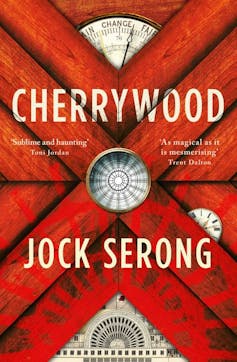
There are many ways of reading Jock Serong’s Cherrywood (Fourth Estate), and it helps to know Enid Blyton’s Magic Faraway Tree and the Melbourne suburb of Fitzroy. Regardless, Serong has created a magical world, illuminated by language that is both lyrical and straightforward. Central to the story is the history of a stack of timber, sourced mysteriously from somewhere in the Caucasus, which links two periods of time, divided by 70 years, all flowing together in a wonderful mix of realism and fantasy.
Dennis Altman is vice chancellor’s fellow and professorial fellow, Institute for Human Security and Social Change, La Trobe University.
Robyn Arianrhod
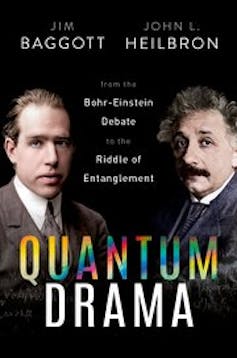
I’ve enjoyed several recent books, including Dava Sobel’s fresh retelling of Marie Curie’s story – and my pick, Jim Baggott and John L. Heilbron’s challenging but compelling Quantum Drama: From the Bohr-Einstein Debate to the Riddle of Entanglement (Oxford University Press). This detailed history of quantum theory includes a terrific explanation of the mysterious “Bell inequality” – which enabled experimenters to prove Einstein’s “spooky” concept of entanglement is real – and a fascinating glimpse into key players’ personal, political and philosophical responses to their bizarre quantum discoveries.
Robyn Arianrhod is an affiliate in the School of Mathematics at Monash University and author of Vector (New South).
Michelle Arrow
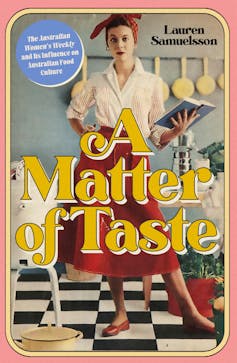
Lauren Samuelsson’s witty, illuminating history of the Australian Women’s Weekly’s food pages A Matter of Taste (Monash University Publishing) reveals their influence on how Australians cooked, ate and entertained in the 20th century. It’s also a fascinating account of changing gender roles: food was largely women’s domestic responsibility and could be a chore, but also provided a space of creativity. This is a view of Australia’s past from the kitchen bench, rather than the driver’s seat of the family car. I’ll bet your mum would love it for Christmas.
Michelle Arrow is professor of history, Macquarie University.
Jumana Bayeh
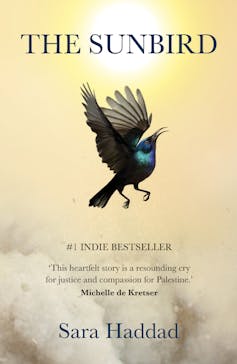
The Sunbird by Sara Haddad (University of Queensland Press) is a short book, a novella, designed to be read in one sitting. It was written after the Gaza war commenced and conveys an urgency to tell the Palestinian story. It focuses on Nabila Yasmeen, a Palestinian woman who lives in Australia because she was exiled from her native Palestine during the 1948 Nakba. The Sunbird jumps across time (1948 and 2023) and space (Palestine and Australia) to capture Nabila’s ongoing displacement and her relentless desire to go home.
Jumana Bayeh is an associate professor in the Faculty of Arts at Macquarie University.
Hugh Breakey
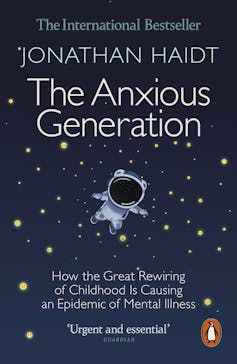
Jonathan Haidt’s The Anxious Generation (Allen Lane) makes two key claims. First, the kids are not alright: compared to earlier generations, Gen Z has almost twice the chance of serious mental health disorders and related episodes. Second, a major cause is the smartphone. Problems arise not only from what happens on smartphones, but what doesn’t happen. Children need unsupervised play, physical risk-taking and relationships with actual peers. Haidt recommends social media be banned for those under 16, but he also urges parents to recognise that social media is not the only source of teenage mental health concerns.
Hugh Breakey is deputy director, Institute for Ethics, Governance & Law, Griffith University.
Mridula Nath Chakraborty
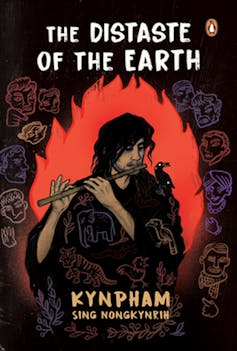
In The Distaste of the Earth (Penguin India), Kynpham Sing Nongkynrih, author of Funeral Nights (2021), continues his fabulist storytelling about mythic archetypes, against the backdrop of his beloved Khasi Hills rainforests. Subverting the tragic star-crossed lovers folktale of Manik Raitong the Wretched and Khasi Queen Liang Makaw, Nongkynrih extends oral storytelling traditions to create an utterly irreverential narrative. Part poetry, part philosophy and part critique, this is a fascinating glimpse into a world weary of humankind and wise in its Aesop-like vision of our contemporary moment.
Mridula Nath Chakraborty is senior lecturer, Monash Intercultural Lab, Monash University.
Intifar Chowdhury
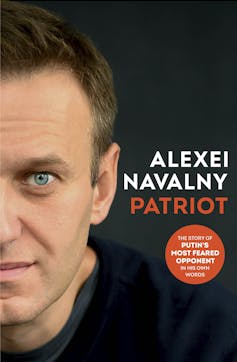
I don’t usually pick up memoirs by those who know they’re about to die – they’re unbearably sad. But Alexei Navalny’s Patriot (Bodley Head) is a darkly comedic exception. Surviving a Federal Security Service (FSB) assassination attempt, Navalny returned to Russia to defy Vladimir Putin, knowing the Kremlin wouldn’t let him go. They didn’t. Written from prison, Patriot immortalises his unshakeable hope for a “beautiful Russia”. With sharp wit and boundless courage, Navalny’s story transcends borders, reminding us of the enduring power of resistance. His voice and vision live on.
Intifar Chowdhury is a youth researcher and lecturer in government at Flinders University.
Tom Doig
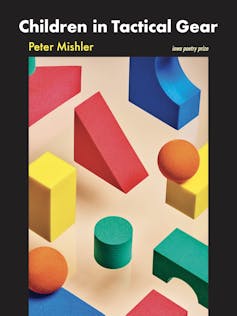
My discovery of 2024 was Children in Tactical Gear (University of Iowa Press) by Peter Mishler, winner of the Iowa Poetry Prize. It’s a technicolour nightmare of whiteboards and bullets, plastic and product placement. Mainly free verse, there are moments of fixed rhyme and metre – which I usually hate. But I love this: “he stands with me, / barefoot, in a whirlpool / of trash, my dark hair collecting / ballistic ash.” The collection is a bleak, pitiless vision of corporate, consumerist America. It would make a perfect Christmas gift.
Tom Doig is an investigative journalist and lecturer in creative writing, University of Queensland
Charmaine Papertalk Green
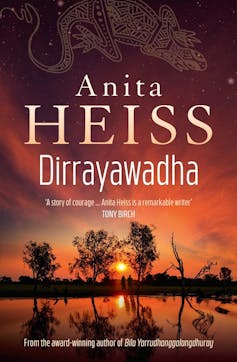
One favourite pick for 2024 is Anita Heiss’ Dirrayawadha (Simon & Schuster Australia), a groundbreaking Wiradyuri nation historical novel set at the time of Wiradyuri–colonial contact in rural New South Wales. This book is a reminder to Australia of the truth-telling needed to wipe away the historical colonial amnesia narratives curated to make Aboriginal people invisible – nullius. This book invites deep listening to a Wiradyuri and Australian story, carrying forward resilience, memory and Country.
Charmaine Papertalk Green is a visual artist and poet, and research fellow, School of Allied Health, Western Australian Centre for Rural Health, University of Western Australia.
Nick Haslam
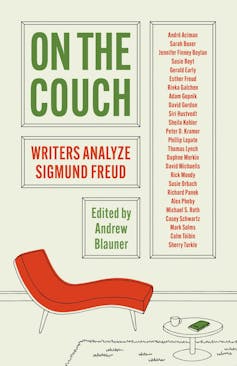
Eighty-five years after his death, is there anything left to say about Freud? Andrew Blauner’s fine collection On the Couch: Writers Analyse Sigmund Freud (Princeton University Press) answers an emphatic yes. A dream-team of leading writers consider subjects ranging from Freud’s first scientific paper (on eel testicles) to the shadowy figure of his wife Martha, and his love of dogs. The book offers lucid, deeply personal reflections on the complicated legacies of psychoanalysis. Is it a failed system, a model of radical doubt, or a humanising corrective to a culture of shallowness and artificiality?
Nick Haslam is professor of psychology, University of Melbourne.
Alexander Howard
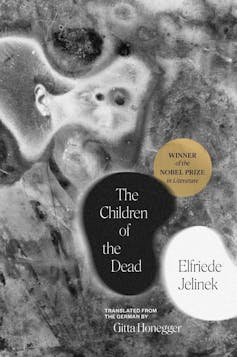
Elfriede Jelinek’s The Children of the Dead (Yale University Press), originally published in 1995, is now available in English for the first time, in a masterful translation by Gitta Honegger. It’s a haunting exploration of Austria’s Nazi past and its failure to confront the Holocaust. Hypnotic and unsettling, Jelinek’s darkly satirical novel yokes avant-gardism and popular culture together, offering an unflinching reckoning with history. With antisemitism and the far-right on the rise in Europe, it feels more urgent and relevant than ever.
Alexander Howard is senior lecturer, English and Writing, University of Sydney.
Tony Hughes d’Aeth
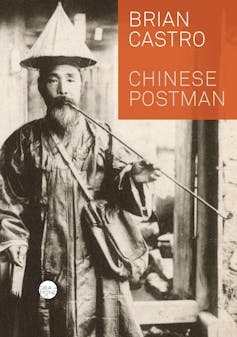
The book I most enjoyed this year was Brian Castro’s Chinese Postman (Giramondo). An elliptical meditation on the indignity of ageing and the inevitability of death might not be everyone’s recipe for a relaxing summer read. Yet Abe Quin, Castro’s alter ego, has a downbeat charm, with his limpid turns of phrase, self-deprecation and seething hatred of hypocrisy. In Castro’s work, there is a bleakness teetering on the edge of farce and a pathos bubbling through quotidian reverie, but the situations bounce back on the springs of his irony. Then the humour drops away and we meet a man reflecting on his life with astonishing candour.
Tony Hughes d’Aeth is chair of Australian literature, University of Western Australia.
Allanah Hunt
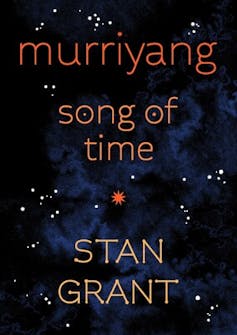
Murriyang: Song of Time by Stan Grant (S&S Bundyi) is a book you will remember for a lifetime. Grant writes with such deep reverence and reflection around ideas of time, spirituality, history, philosophy and physics. The sections on Grant’s father, Wiradjuri leader Uncle Stan Grant Sr, are the book’s true heart, making me reflect on my own relationship with my parents with deeper understanding. Grant’s book is about building a bridge of love: with parents, with community, even with those who espouse racist ideologies.
Allanah Hunt is lecturer, Aboriginal and Torres Strait Islander Studies Unit, University of Queensland.
Andy Jackson
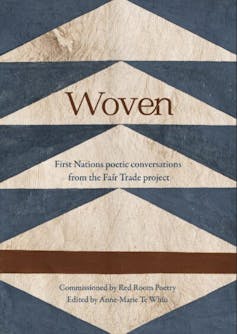
Anthologies are so diverse, a reader’s enthusiasm often wanes at certain points. But Woven, edited by Anne-Marie Te Whiu (Magabala Books), is a breathtaking exception. This collection of 15 collaborations between First Nations poets from Australia and overseas is consistently compelling and formally ingenious, with lyrical, political punch. Joy Harjo with Ali Cobby Eckermann, Tony Birch with Simon J. Ortiz, and Raelee Lancaster with essa may ranapiri are standouts. But all the conversations in the book brilliantly enhance solidarities, while allowing differences to cohabit with care.
Andy Jackson is a poet and creative writing lecturer, University of Melbourne.
Philip Johnson
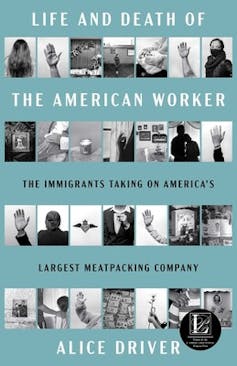
I first read Alice Driver’s reporting on slaughterhouse workers in the US South in the New York Review of Books in 2021. Life and Death of the American Worker (Atria/One Signal Publishers) is the book-length investigation I’ve waited for since. From Arkansas, but reporting for years from Mexico and Central America, Driver was uniquely equipped to get to know the Spanish-speaking workers who prop up the US meat industry. When Covid hit, she was immersed in this world. She offers incredible insights into the expendable lives powering an “essential” industry.
Philip Johnson is lecturer, College of Business, Government and Law at Flinders University. He researches crime and violence in the Americas.
Natalie Kon-yu
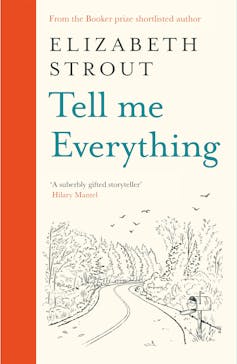
In Tell Me Everything (Viking), Elizabeth Strout demonstrates why she is one of the best living writers in the Anglophone world. It’s hard to summarise the plot – there is some narrative tension about a court case, a hard death and a love story – but these are not the point of the book. If there is a point, it is that there is a multitude of conflicting stories within us – and all of them shape us, whether we know it or not.
Natalie Kon-yu is associate professor, creative writing and literary studies, Victoria University.
John Long
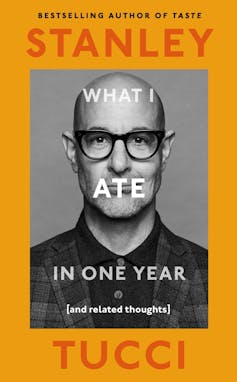
Stanley Tucci’s What I Ate in One Year (Fig Tree) is exactly what we all need in these strange times. While Tucci’s prose immediately piques your curiosity about Italian cooking, it dives much deeper than just food. My favourite parts are the unexpected moments of profound humanity as he reflects on the value of family, friendships, mortality and the downsides of being famous. Tucci’s year is exposed in this engrossing, humorous, heartwarming book. A delicious memoir of gastronomy, love, loss, death and pasta. Oh yes, and more pasta!
John Long is strategic professor in palaeontology, Flinders University.
Julienne van Loon
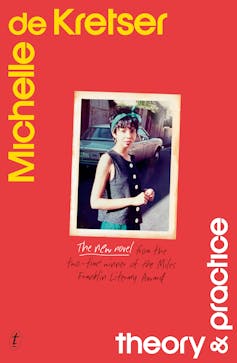
I loved Michelle de Kretser’s Theory & Practice (Text Publishing) for its formal experimentation and for its post-critique flavour. How does de Kretser do both those things and write such a page turner? It’s a disturbing read and a thoughtful one. Disturbing because distrust, betrayal and other familiar exclusionary tactics reproduce themselves in the world of the narrator. Thoughtful because de Kretser urges us to look at the relationship between theory and practice with clear-sightedness and care.
Julienne van Loon is associate professor in creative writing, School of Culture and Communication, University of Melbourne
Peter Mares
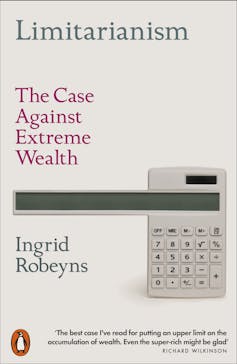
The most recent data shows CEOs of Australia’s top listed companies take home 55 times average adult earnings. Yet such inequalities rarely feature in public policy. The focus is on tackling disadvantage and increasing opportunity, without addressing entrenched privilege and unequal outcomes. Poverty is a politically safe topic, argues Ingrid Robeyns. Inequality raises uncomfortable questions about societal structures, political choices and power differences. In a democratic society, we should argue about how much inequality is (un)reasonable. Limitarianism: The Case Against Extreme Wealth (Allen Lane) can help that conversation.
Peter Mares is adjunct senior research fellow, School of Media, Film and Journalism, Monash University.
Vijay Mishra
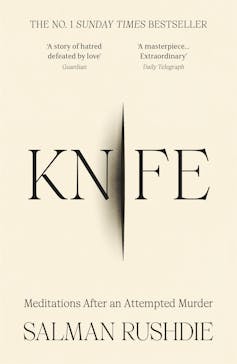
We have been told authors die in the act of writing. What strikes me about Salman Rushdie’s memoir, Knife: Meditations After an Attempted Murder (Jonathan Cape), is his engagement with death in its very materiality, its corporeality, as he describes what it is like to be confronted, after the fatwa, with a second death. Written without sentimentality or accusation, this is an extraordinary account that makes us think of death not as a theoretical premise that informs the act of writing, but a living reality for an author who dared to challenge age-old assumptions.
Vijay Mishra is emeritus professor of English and comparative literature, Murdoch University.
Lynda Ng
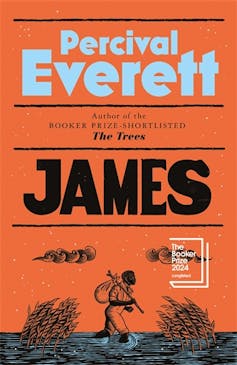
This year, the Booker judges overlooked a piercing reflection on racial identity in favour of a novel set on a space station. While we may like to believe the existential threat of climate change will ultimately overturn racial politics, Percival Everett’s James (Mantle) forces us to consider the ethics of embracing such a post-racial fantasy. Everett’s reimagining of Mark Twain’s classic Huckleberry Finn imbues the runaway slave Jim with ingenuity, agency and gravitas. His scintillating prose elicits a long overdue reckoning with the literary canon.
Lynda Ng is lecturer in world literature (including Australian literature), University of Melbourne.
Julian Novitz
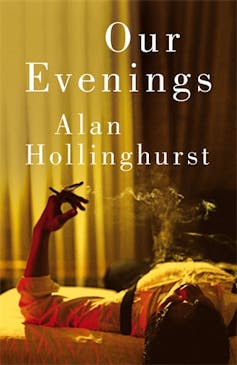
Alan Hollinghurst’s Our Evenings (Picador) follows Dave Win from his youth in 1960s England through to the era of Brexit turmoil and pandemics. While the history is sweeping, the novel focuses on significant yet understated moments, particularly those that reflect on Dave’s close relationship with his resilient mother and his entanglement with a wealthy family encountered while a scholarship student at boarding school. Hollinghurst’s preoccupations are on display: class, sexuality, race and power, generational shifts, legacies and memories. Dave is an excellent lens for exploring these concerns and perhaps Hollinghurst’s most engaging protagonist to date.
Julian Novitz is senior lecturer, writing, department of Media and Communication, Swinburne University of Technology.
Edwina Preston
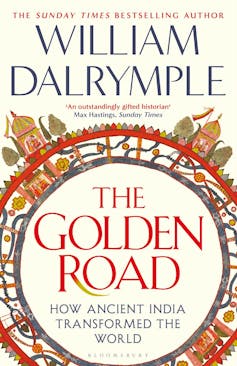
My pick is British historian William Dalrymple’s The Golden Road: How Ancient India Transformed the World (Bloomsbury). After hearing him speak about this book in Melbourne a few weeks ago, I purchased and devoured it. It is, in written form, a reflection of Dalrymple’s erudition and passion: a vastly and methodically researched resetting of cultural truths that puts India at the centre of South-East Asian culture and religion, and positions India’s Golden Road as every bit as important as the Silk Road.
Edwina Preston is a novelist and PhD candidate in the School of Culture and Communication, University of Melbourne.
Carl Rhodes
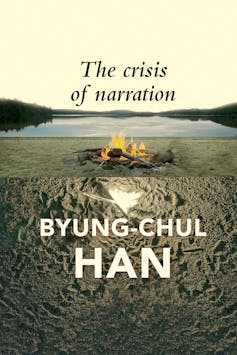
Byung-Chul Han’s The Crisis of Narration (Polity) is an indictment of the loss of community and identity in a world drowning in information and all-too-easy clickbait answers. Narrative, in Han’s words, no longer “anchors us in being”. Storytelling has been reduced to political pitches and advertisements. We are left with “storyselling” where dissemination and manipulation lock us into the moment like a just-swiped selfie. Is all hope gone? It would be hard to describe Han’s book as positive. But The Crisis of Narration offers a provocative, novel and insightful way to reconsider politics and community in the age of information.
Carl Rhodes is dean and professor of organisation studies at UTS Business School.
Euan Ritchie
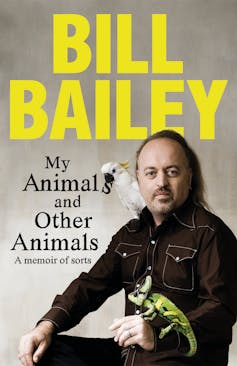
Observing wildlife and communing with nature brings immense joy to my life. Bill Bailey – extraordinarily talented multi-instrumentalist, actor and quirky comedian – is also known for his adoration of animals. So, it’s unsurprising I was instantly drawn to My Animals and Other Animals: A Memoir of Sorts (Quercus). A quick skim of the contents hooked me. With stories like Radioactive Sea Lice, Hissing Cockroaches and The Chicken that Went Bad, I simply had to read on. Complete with gorgeous drawings, it’s the delightful, heartwarming romp you’d expect.
Euan Ritchie is professor in wildlife ecology and conservation, School of Life & Environmental Sciences, Deakin University.
Matthew Sharpe
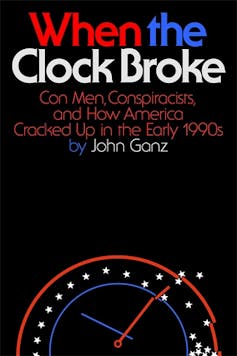
Future historians will puzzle about how, in 2024, a twice-impeached convicted felon facing indictment for his role in insurrectionary violence was returned to office by popular vote. John Ganz’s When the Clock Broke (Farrar Straus Giroux) will be a work of reference, as it is for anyone today trying to understand “how America cracked up”. Ganz’s scope is sweeping, his prose incisive. He shows that Trump did not come from nowhere. MAGAism is the product of over three decades of radicalisation on the right. Ganz does not preach; he simply reports, leaving readers to draw the links between then and now.
Matthew Sharpe is associate professor in philosophy, Australian Catholic University.
Elfie Shiosaki
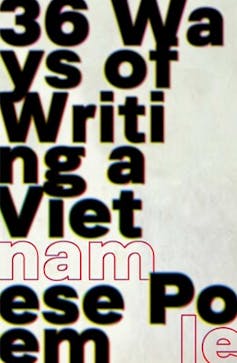
Award-winning writer Nam Le’s form-breaking book of poetry, 36 Ways of Writing a Vietnamese Poem (Scribner Australia), is a bracing reckoning with identity and representation, each poem a distinct vantage point from which to examine the violence of identity, with both clarity and ambiguity. With unpredictable and destablising movement, Le masters language, its form and its register, only to break it, demonstrating the power of language to erase identity on one hand and resist erasure on the other.
Elfie Shiosaki is associate professor, The Centre for Social Policy Research, Australian National University
Emma Shortis
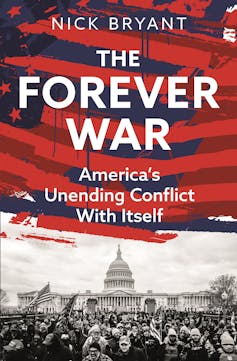
In the endless stream of hot takes on American politics, Nick Bryant’s The Forever War (Viking) is a breath of fresh air. This beautifully written book reminds us that Trump is both symptom and cause, both new and old. The Forever War meticulously makes sense of the unresolved contradictions of American history, unpicking tired mythology to clearly argue that Trump – and his support – is the product of that inescapable history.
Emma Shortis is adjunct senior fellow, School of Global, Urban and Social Studies, RMIT University.
Wanning Sun
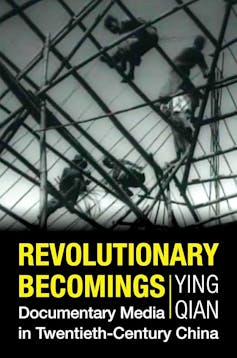
Ying Qian’s Revolutionary Becomings (Columbia University Press) is a fascinating study of how Chinese documentary cinema shaped the revolutionary politics of the 20th century. It traces the emergence of early documentaries about colonial war and transnational revolutionary networks. The author analyses how documentary impacted political and social change during the Mao and post-Mao periods. She is deeply empathetic to revolutionaries’ aspirations and actions, but insists on learning hard lessons from China’s revolutionary past. It promises to be rewarding reading, likely to stimulate scholars, documentary-makers and cinema lovers alike.
Wanning Sun is professor of media and cultural studies, University of Technology Sydney.
Jen Webb
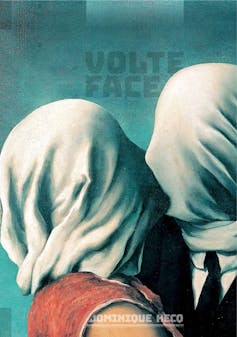
Dominique Hecq’s Volte Face (Liquid Amber Press) is an exquisite collection of prose poems: poems written in sentences and paragraphs rather than lines, while obeying the grammar of poetry rather than prose. The book is crammed with luscious words and impossible juxtapositions that, articulated (by the poet) and contemplated (by the reader), seem entirely true. This work is a “fugue of language”, whose poems eschew reportage. Instead, they work through gestures of recognition, instances of spotting something unexpected from the corner of the eye.
Jen Webb is distinguished professor of creative practice, Faculty of Arts and Design, University of Canberra.
Jo Case, Deputy editor, Books & Ideas, The Conversation
This article is republished from The Conversation under a Creative Commons license. Read the original article.

